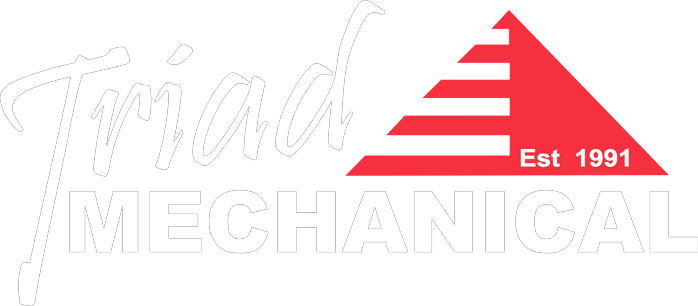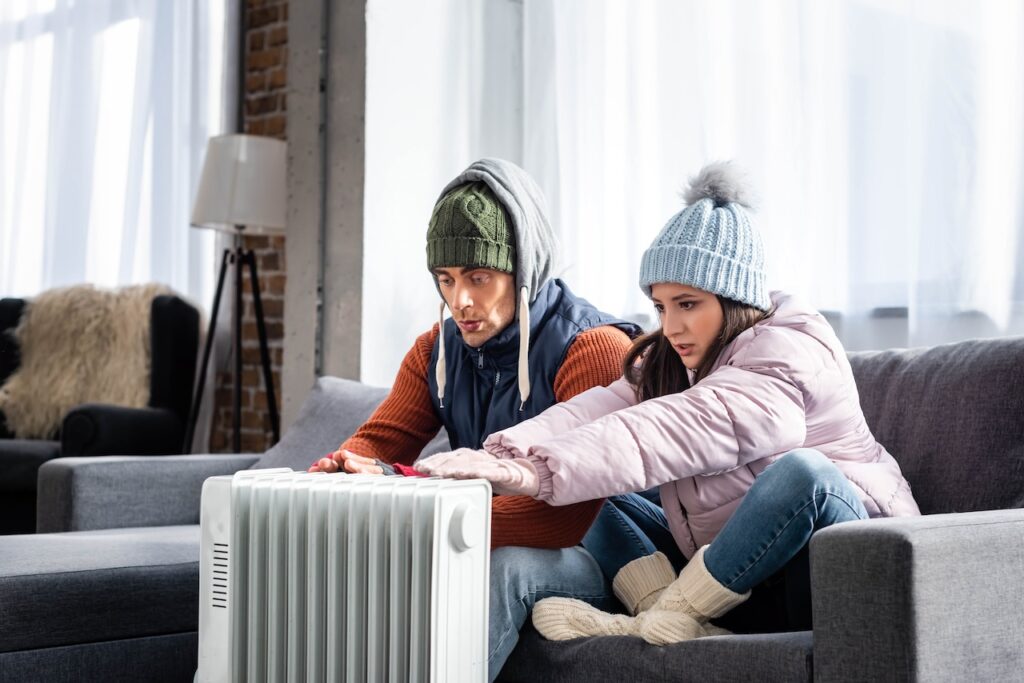If you’ve ever glanced at your thermostat during a freezing winter night and seen a mysterious button labeled “EM heat,” you’re not alone. Many homeowners are left wondering “What is EM heat?” or “What does EM heat mean?”
Short for Emergency Heat, EM heat, or auxiliary heat, is a backup heating option used in homes that rely on a heat pump system. When the heat pump can’t keep up with demand—either due to extremely cold temperatures or mechanical failure—your thermostat can switch to EM heat to activate a secondary heat source (usually electric resistance heating or a gas furnace).
But here’s the catch: while EM heat can save the day in a pinch, it’s not designed for long-term use. It’s more expensive and less efficient than your regular heat pump setup, and knowing when and how to use it can save you hundreds on your energy bill.
EM Heat vs Heat: The Important Difference
So how exactly does EM heat vs heat break down? Let’s explore both heating systems so you can make the best decision for your home.
1. The Basics
- Heat (Standard Mode): In a heat pump system, “Heat” uses the pump to extract warmth from the outside air—even in colder weather—and deliver it indoors. It’s efficient and cost-effective, using electricity in a smart, energy-saving way.
- EM Heat (Emergency Heat): Bypasses the heat pump entirely and turns on a backup heat source. This could be an electric heat strip, oil burner, or gas furnace. It’s designed to be used when your main heat pump isn’t functioning properly or when outside temperatures are too cold for the pump to work efficiently.
2. Which One Is Better?
It depends on the situation.
- Standard Heat Mode is almost always the better choice for daily heating needs. It’s cheaper and designed for regular use.
- EM Heat is ideal only when your heat pump has failed or during freezing weather when the pump can’t keep up. If your thermostat automatically switches to EM Heat without manual input, you should consider calling a technician.
3. Pros and Cons
| Feature | Standard Heat | EM Heat |
| Cost Efficiency | Highly efficient | Expensive to operate |
| Usage Frequency | Daily use | Emergency/backup only |
| Temperature Range | Works well above 30°F | Effective in extreme cold |
| Automatic Switch | Normal function | May need manual activation |
How to Know If You Need EM Heat
Use this quick checklist to know when EM Heat might be appropriate:
- The outdoor temperature is below 30°F and your home is still cold.
- Your heat pump is making unusual noises or not blowing warm air.
- A technician has advised using EM Heat while awaiting repairs.
If none of these apply, stick with your standard heat mode for better efficiency and lower bills.
Common FAQs: Answered
Q: Should I leave EM Heat on all winter?
A: No. EM Heat is a temporary fix and is much more expensive to operate than your regular heat pump. If your system keeps switching to EM Heat, it’s likely a sign something’s wrong.
Q: Why is my EM Heat on, but the house is still cold?
A: Your backup heating system might not be working correctly. Check the thermostat settings and call a professional to inspect the unit.
Q: Does EM Heat mean my heat pump is broken?
A: Not necessarily. Some systems may switch to EM Heat during extremely low outdoor temperatures. However, if it switches often or without a clear temperature drop, get it checked out.
Q: Can I manually turn on EM Heat?
A: Yes, most thermostats let you manually activate EM Heat. Only do this if your heat pump isn’t working or your technician has recommended it.
Triad Mechanical Has the Resources You Need
At Triad Mechanical, we understand that heating your home is about more than comfort—it’s about safety, efficiency, and peace of mind. Whether you’re trying to figure out what EM heat means or experiencing a sudden heating failure, our team is equipped to help.
From diagnosing tricky heat pump issues to installing energy-efficient backup systems, we provide expert heating services tailored to your home’s needs. Don’t let winter catch you off guard—our 24/7 emergency services and expert technicians are ready when you need us most. Need help? Call Triad Mechanical, your local experts in all things heating.


